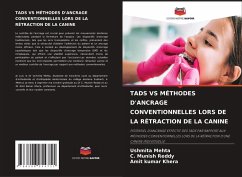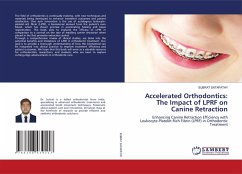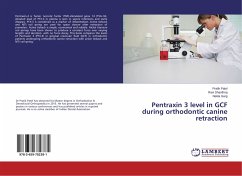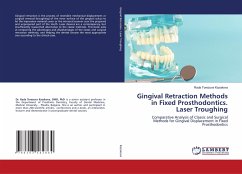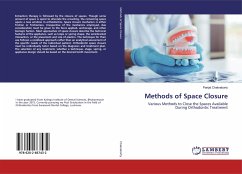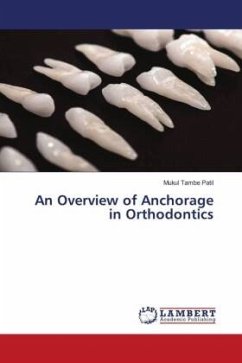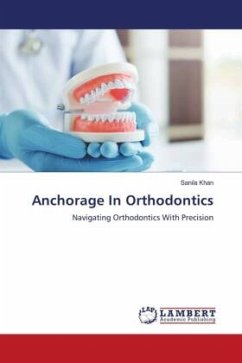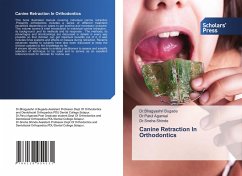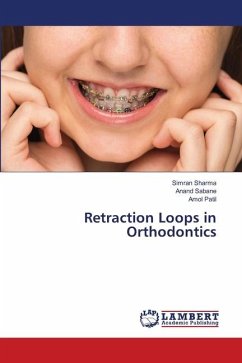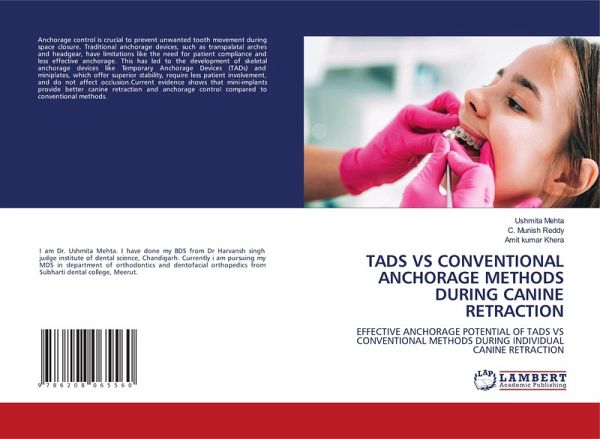
TADS VS CONVENTIONAL ANCHORAGE METHODS DURING CANINE RETRACTION
EFFECTIVE ANCHORAGE POTENTIAL OF TADS VS CONVENTIONAL METHODS DURING INDIVIDUAL CANINE RETRACTION
Versandkostenfrei!
Versandfertig in 6-10 Tagen
29,99 €
inkl. MwSt.

PAYBACK Punkte
15 °P sammeln!
Anchorage control is crucial to prevent unwanted tooth movement during space closure. Traditional anchorage devices, such as transpalatal arches and headgear, have limitations like the need for patient compliance and less effective anchorage. This has led to the development of skeletal anchorage devices like Temporary Anchorage Devices (TADs) and miniplates, which offer superior stability, require less patient involvement, and do not affect occlusion.Current evidence shows that mini-implants provide better canine retraction and anchorage control compared to conventional methods.





